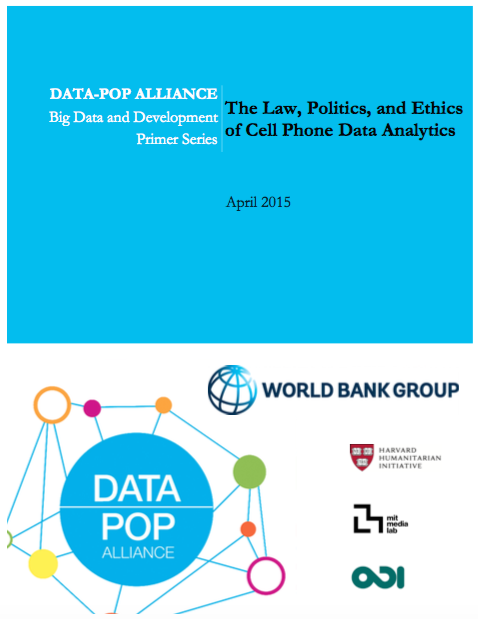This paper is a Data-Pop Alliance White Paper. It was written by Emmanuel Letouzé and Patrick Vinck, in collaboration with the World Bank Group and the D4D team.
“The Law, Politics and Ethics of Cell Phone Data Analytics” examines Call Detail Records (CDRs), a record that includes among other data, the starting time of the call (or message), its duration, the originating and receiving phone numbers, and the benefits and risks involved in their sharing and use. CDRs are essentially used for billing, monitoring voice and data usage, and understanding and targeting customers based on their cell phone consumption patterns, but has recently been recognized for the insight they provide into human behavior, movements, and social interactions. As the proposed use of CDR expands well beyond their original purpose, certain ethical and legal questions need to be addressed. The paper summarizes current legal frameworks before exploring structural socio-political parameters and incentives structuring the sharing of CDRs, proposing guiding ethical principles, and discussing operational options and requirements.

